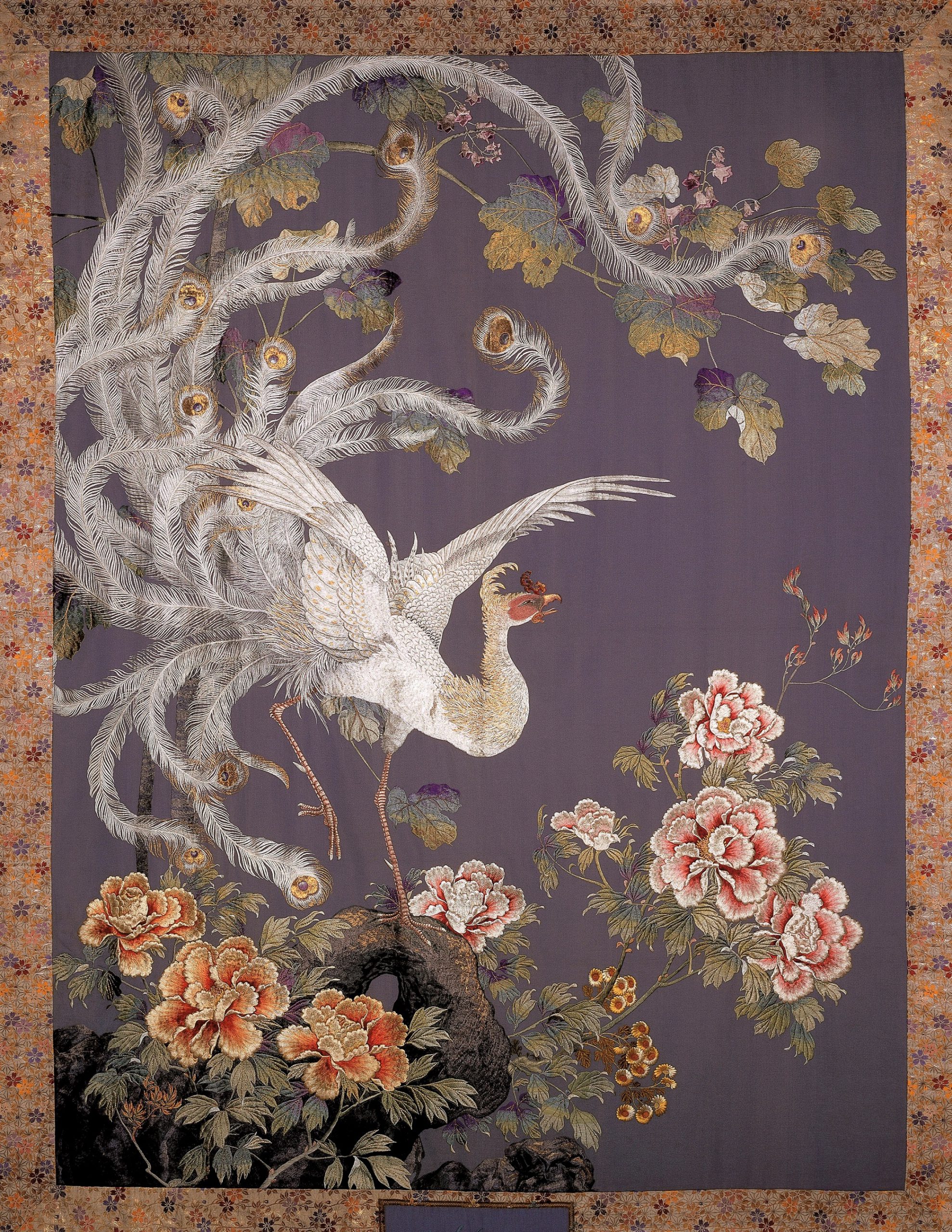 Print Page
Print Page
 Print Page
Print Page
Location: Japan
Materials: embroidered silk, 20th century border with woven silk
Dimensions: 271 x 218 cm (overall); 230 x 174 cm (excluding border)
Accession Number: MISC 16
Other Notes:
Around 1900, a number of Kyoto factories, especially that of Kawashima Jinbei, produced large textile hangings inspired by the European custom of decorating formal rooms with large tapestries. The main subject matter of this embroidery, a ho-o bird, is seen on late sixteenth-century Japanese screens made for the interiors of palaces and castles. At that time, the ho-o was favoured as a motif because in early Chinese writings its appearance is said to herald the arrival of a virtuous monarch. This hanging thus combines elements of both European and Japanese elite interior design of the sixteenth century, but with a distinctly early twentieth-century mode of expression.
Bibliography:
J. Earle, Splendors of Imperial Japan: Arts of the Meiji period from the Khalili Collection, London 2002, cat. 299, pp. 404–5.
